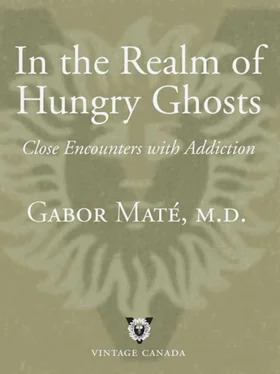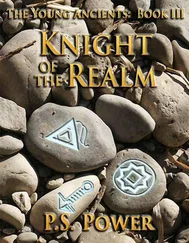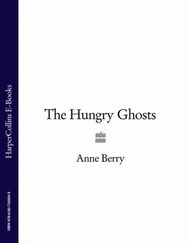“I am. I want this more than anything.”
In the waiting area outside my office the patients are getting restless. Someone screams. Celia waves her hand dismissively.
I smile at her. “You didn’t sound too different from that yesterday.”
“I was a lot worse than that. I was completely insane.”
The screaming resumes, this time louder. “Fuck off, you goddamn asshole,” Celia shouts, her tone suddenly vicious. “I’m talking with the doctor!”
August 2004
I like to have music playing on the small acoustic system behind my desk. My patients, very few of whom are familiar with the classical genre, often remark that they find it a welcome, soothing surprise. Today it’s Kol Nidrei, Bruch’s setting of the Jewish soul’s prayer for atonement, forgiveness and unity with God. Celia closes her eyes. “So beautiful,” she sighs.
When the music is over, she stirs from her reverie and tells me she and her boyfriend are making plans for the future.
“What about your ongoing addiction? Is it creating a problem for you or him?”
“Well, yeah, because the whole me isn’t there…. You don’t get the best of a person when there’s an addiction, right?”
“Right,” I concur. “I know something about that myself.”
October 2004
Celia is expecting. Down here that’s always a mixed blessing at best. It may seem that a physician’s first thought with a newly pregnant, drug-dependent patient would be to counsel abortion. But the doctor’s job—with this or any other population—is to ascertain the woman’s own preferences and, if appropriate, explain the options without exerting any pressure to decide this way or that.
Many addicted women decide to have their babies, rather than choose the route of an early abortion. Celia is determined to see the pregnancy through and to keep the baby. “They’ve taken away my first two kids; they’ll never take this one,” she vows.
A review of Celia’s medical chart over the past four years reveals nothing encouraging. Several suicide threats. Involuntary committal to a psychiatric ward because, during a blaze at the Washington Hotel, she would not come down from the fire escape. Numerous physical injuries—bone fractures, bruises, black eyes. Abscesses treated by surgical drainage, dental infections, episodes of pneumonia requiring hospitalization, a shingles outbreak, recurrent fungal infestations of the mouth, a rare blood infection—the manifestations of an immune system under siege by HIV and challenged to the limit by frequent drug injection. For a long time Celia did not comply with the prescribed antiviral treatments. Her liver is damaged by hepatitis C. The one hopeful note is that since being with Rick, her current “old man,” she’s been taking her HIV medications regularly, and her immune counts have climbed back up into the safe range. If she continues the treatment, her baby will not become infected.
Today she is here with Rick. The two snuggle close and give each other tender glances. It’s the first prenatal visit, and Celia is recounting her previous childbearing history.
“I raised my first son for nine months. His father ended up leaving us…he was a good father…I was injecting. It was very irresponsible of me.”
“So you understand why this baby might be taken away, too, if you continue using. “
Celia is emphatic. “Oh, yeah, definitely. I would never put a child in any position to suffer from my addiction…I mean it’s easier to say than do…but…”
I look at Rick and Celia, sensing how fervently they want this child. Perhaps they see their baby as their saviour, as the force that will give them strength to hold their lives together. My concern is that they are engaged in magical thinking—like children, they believe that wishing something will make it happen. Celia is deeply entrenched in her addictions. Neither she nor Rick is close to resolving the traumas and psychological burdens that blight their relationship. I do not believe the stirring of this new life in Celia’s womb will do for these parents what they have been unable to achieve for themselves. Freedom is not gained so easily.
Despite my doubts and misgivings, with all my heart I want them to succeed. Pregnancy has helped some addicts break away from their habits, and Celia would not be the first one to make it. Carol, the young woman with a crystal meth and opiate dependence quoted in Chapter 3, has given birth to a healthy infant, given up her addiction and moved to the B.C. interior to live with her grandparents. And there have been a few other success stories among my patients over the years.
“I’ll give you whatever help I can,” I say. “It’s a chance for a new life, not just for the baby, but for you individually—and for the two of you together. But you know you have some obstacles to overcome.”
The first item I bring up is Celia’s addiction. Her opiate dependence can be taken care of by the methadone. Contrary to what Celia expects, we will not only maintain her on this drug but will likely increase the dose as the pregnancy proceeds. A fetus undergoing opiate withdrawal in utero may suffer neurological damage, so it’s better for the baby to come into the world with an opiate dependence and to wean her from it gently post partum. Cocaine is another matter. Given how rabidly dysfunctional Celia is under the influence of this drug, it is inconceivable that she could comply with obstetrical care or, afterwards, maintain custody of her child unless she gives up the habit. I urge her to enter a recovery home, far from the Downtown Eastside.
“I can’t be away from Rick,” Celia replies.
“It’s not about me,” Rick says. “It’s about you getting the recovery and stability you need.”
“You said to me not long ago that you have trouble with trust,” I remind Celia. “How clear are you that you trust Rick now?”
“Well, I’m seeing that he is very committed. But”—she takes a deep breath and looks directly at her partner—“I’m scared, because every time I have trusted in the past, I’m always…I’m always disappointed. So I’m scared, but I’m still willing to trust.”
“If that’s the case,” I suggest, “then staying close to Rick physically…”
Celia completes the thought. “Then staying close to him physically is not going to change anything.”
Outside the office the clamour of waiting patients is mounting. I promise to explore recovery options for Celia and hand her the standard blood test and ultrasound requisitions. When I rise to open the door, Celia does not budge from her chair. She hesitates and glances at Rick briefly before speaking. “You have to lighten up on me,” she says to him. “I know it’s very hard for you to see me doing dope when I’m pregnant…” She pauses and gazes at the floor. I urge her to continue.
“I need encouragement, not anger. Rick can be cutting with his words…very sharp.” She faces him once more and addresses him deliberately and firmly. “You reinforce all the negative things people have said about me, accusing me…‘Yeah, they were right, they said this, they said that. Yeah, you are this, you are that,’ and throwing in some more stuff that’s nothing to do with me. I’m not promiscuous; I’m not a whore…”
Rick’s fidgets and stares at his feet. “We still have a lot of work to do on our relationship,” he says, “but we have a different motivation now.”
“It’s frustrating for you to watch Celia do drugs.”
“Very frustrating. But that frustration is mine. It’s my responsibility.”
Rick, as an alcoholic, has done some Twelve-Step work. He is quick to understand and, like Celia, he is insightful and articulate. “There’s a fine line,” he offers, “between healthy boundaries and co-dependency, where you’re just getting walked over. In the heat of the moment, it’s so tough for me to discern that.”
Читать дальше












